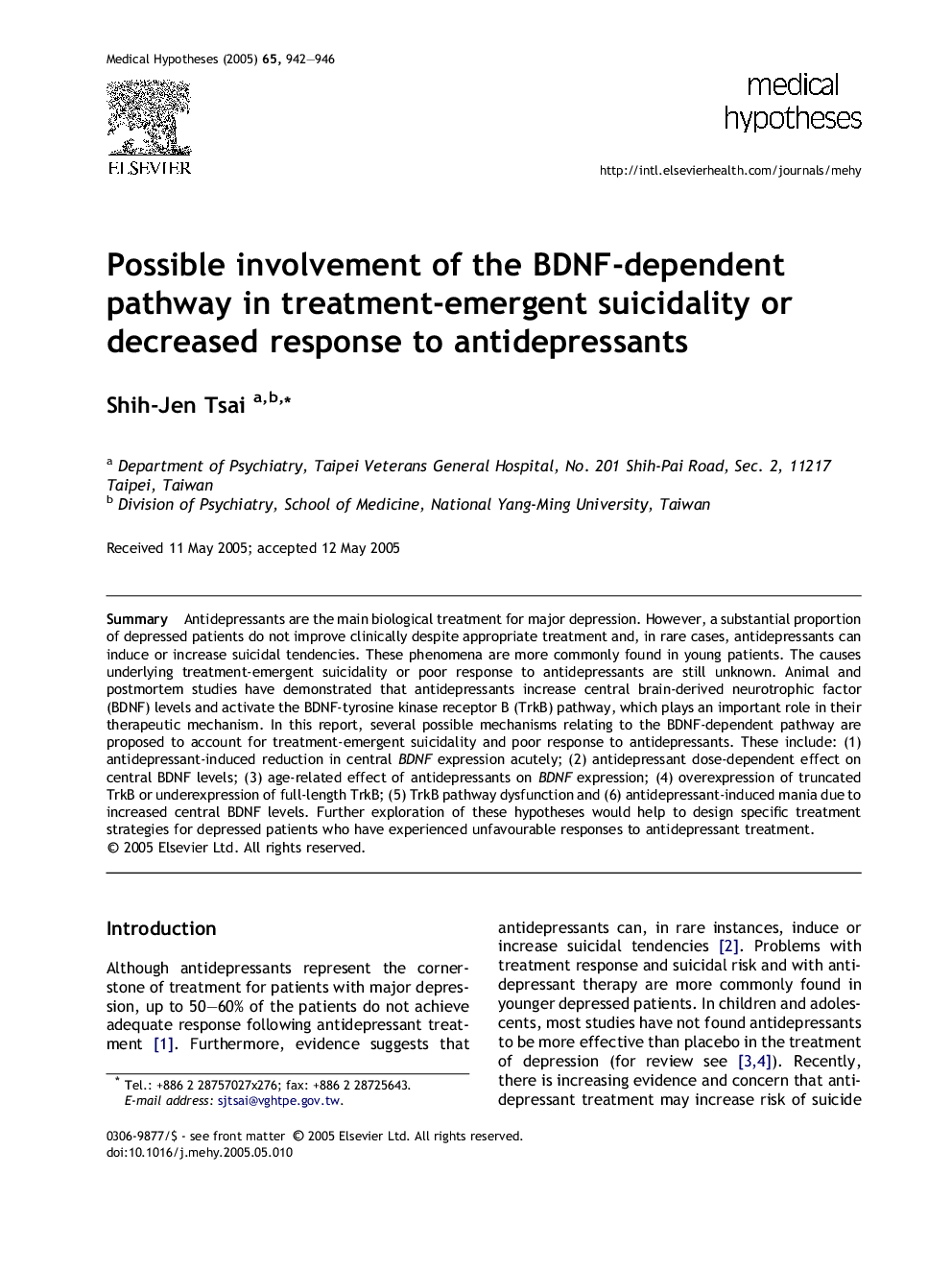| Article ID | Journal | Published Year | Pages | File Type |
|---|---|---|---|---|
| 8996642 | Medical Hypotheses | 2005 | 5 Pages |
Abstract
Antidepressants are the main biological treatment for major depression. However, a substantial proportion of depressed patients do not improve clinically despite appropriate treatment and, in rare cases, antidepressants can induce or increase suicidal tendencies. These phenomena are more commonly found in young patients. The causes underlying treatment-emergent suicidality or poor response to antidepressants are still unknown. Animal and postmortem studies have demonstrated that antidepressants increase central brain-derived neurotrophic factor (BDNF) levels and activate the BDNF-tyrosine kinase receptor B (TrkB) pathway, which plays an important role in their therapeutic mechanism. In this report, several possible mechanisms relating to the BDNF-dependent pathway are proposed to account for treatment-emergent suicidality and poor response to antidepressants. These include: (1) antidepressant-induced reduction in central BDNF expression acutely; (2) antidepressant dose-dependent effect on central BDNF levels; (3) age-related effect of antidepressants on BDNF expression; (4) overexpression of truncated TrkB or underexpression of full-length TrkB; (5) TrkB pathway dysfunction and (6) antidepressant-induced mania due to increased central BDNF levels. Further exploration of these hypotheses would help to design specific treatment strategies for depressed patients who have experienced unfavourable responses to antidepressant treatment.
Related Topics
Life Sciences
Biochemistry, Genetics and Molecular Biology
Developmental Biology
Authors
Shih-Jen Tsai,
